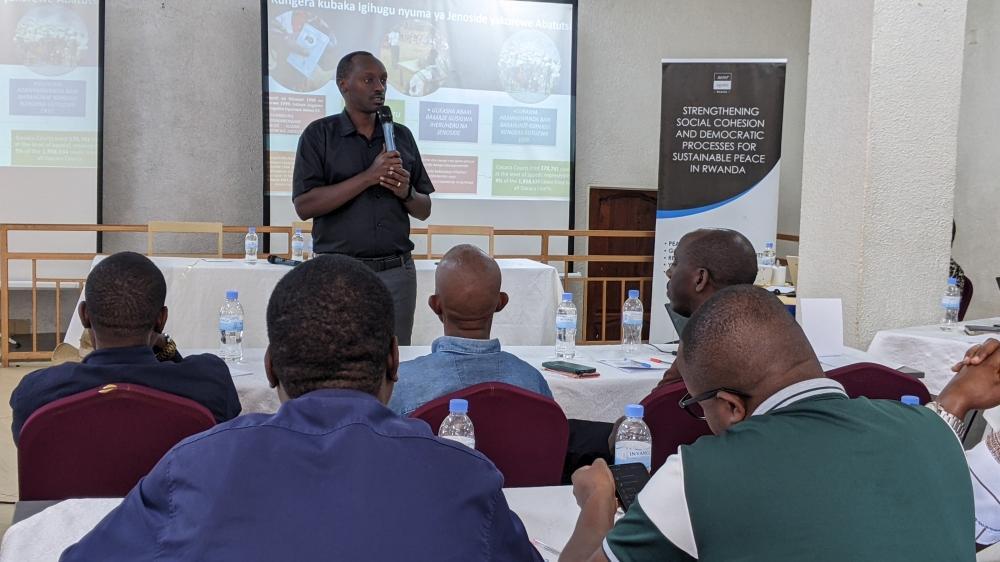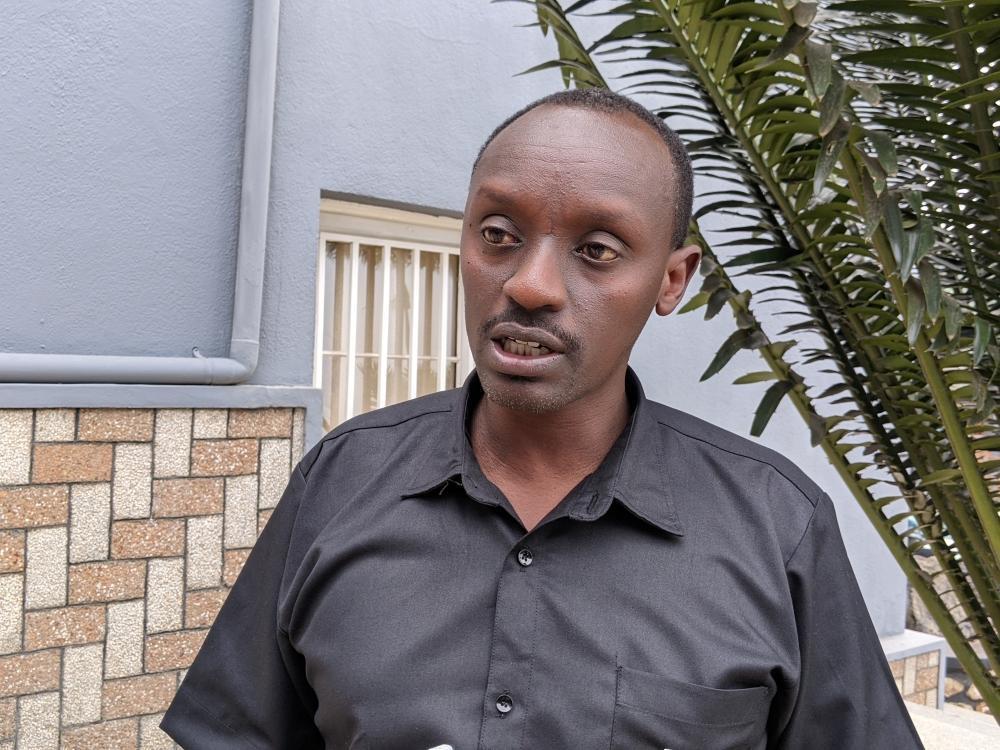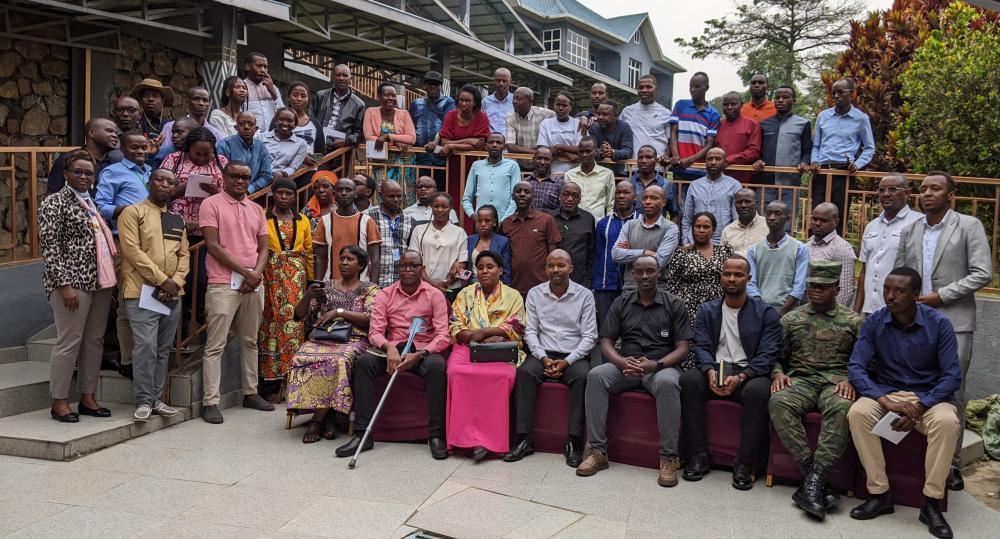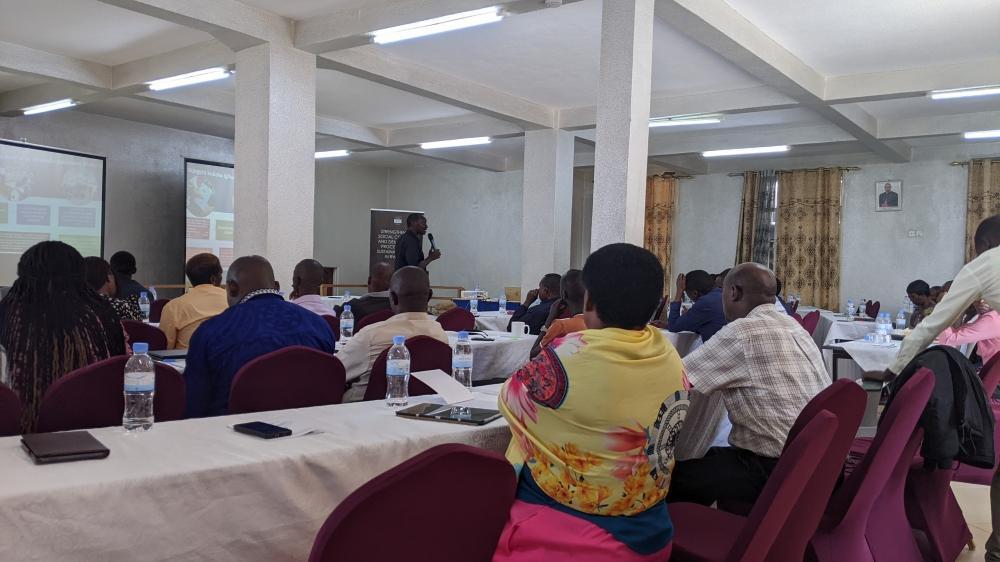Africa-Press – Rwanda. Rubavu District is intensifying efforts to combat hate speech much of it originating from the Democratic Republic of Congo (DR Congo) as part of a wider drive to address trauma among families affected by the 1994 Genocide against the Tutsi.
The initiative is led by Never Again Rwanda, a peace-building organisation, which is training local leaders in border districts, including Rubavu, Huye, Gisagara, Nyagatare, and Kayonza. The program aims to help leaders address psychological wounds rooted in the Genocide and worsened by ongoing regional conflicts.
A recent Never Again Rwanda study, assessing local leaders’ capacity needs in Participatory Governance, found major skill gaps among grassroots leaders — with service delivery rated at 13.4 percent, public accountability at 13.6 percent, and problem-analysis capacity at 42.8 percent.
These shortcomings, the study warned, hinder leaders’ ability to help residents manage emotions and cope with past trauma.
Claver Gatabazi, Head of Peace Building at Never Again Rwanda, said border communities remain vulnerable to “genocide ideology and hate speech disseminated from neighboring countries, including the DR Congo and Burundi.”
Claver Gatabazi, Head of Peace Building at Never Again Rwanda.
“Local leaders need to understand trauma and post-genocide challenges rooted in our history,” he said. “Our 2021 research showed discrimination within families remains a major source of trauma.”
A separate 2021 Unity Club Intwararumuri study revealed severe psychological impacts on younger generations: 99 percent of children who survived the Genocide but do not know their origins experience trauma; 87 percent of youth who directly survived report trauma; and 69 percent of those born to parents raped during the Genocide are also affected.
Gatabazi warned that cross-border shelling from the DR Congo last year and ongoing conflict have intensified fears in western Rwanda.
“People worry that the FDLR could cross the border and carry out killings, as in 1994,” he said. “Proximity to Congo fuels cases of genocide ideology, especially when cross-border visits expose residents to hate speech.”
He added that ongoing campaigns in the DR Congo targeting Kinyarwanda-speaking communities threaten genocide-affected families and Rwanda’s peace.
Rubavu officials welcomed the training. Epimaque Hagenimana, Director of the Social Development Unit, said it equips leaders to offer empathetic support.
“Given our community’s history, it’s vital that local authorities meet people with understanding,” he said.
Furaha Jeannette Mukamusoni, Acting Executive Secretary of Rubavu Sector, noted that while ethnicity-based incidents still occur in Rubavu, unity and reconciliation programs are helping address them.
“Learning the root causes of family conflicts is key to resolving disputes and fostering healing,” she said.
Local authorities pose for a group photo after the training in Rubavu town.
Officials follow training sessions on the country’s history.
For More News And Analysis About Rwanda Follow Africa-Press









